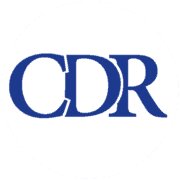Best Banking & Finance Lawyers in Germany
Share your needs with us, get contacted by law firms.
Free. Takes 2 min.
Or refine your search by selecting a city:
List of the best lawyers in Germany
About Banking & Finance Law in Germany
Banking & Finance law in Germany encompasses a broad range of legal regulations that govern the functioning of banks, financial services, lending practices, transactions, and the rights and obligations of all parties involved. Germany, as Europe's largest economy, has a robust banking sector regulated by a combination of national and EU laws. The Bundesanstalt für Finanzdienstleistungsaufsicht (BaFin) is responsible for overseeing financial institutions to ensure market stability and consumer protection. Laws addressing banking operations include the Banking Act (Kreditwesengesetz, KWG), the Securities Trading Act (Wertpapierhandelsgesetz, WpHG), and the German Banking Code.
Why You May Need a Lawyer
Engaging a lawyer versed in Banking & Finance law can be necessary for various reasons. Common situations include negotiating the terms of loans or mortgages, resolving disputes with banks or financial service providers, regulatory compliance issues, or navigating complex financial instruments. Businesses also seek legal advice for structuring financial transactions, mergers and acquisitions, or tackling insolvency issues. Legal experts provide counsel to mitigate risks, ensure compliance with intricate regulations, and protect your financial interests.
Local Laws Overview
Germany's Banking & Finance legal framework is heavily influenced by its integration with European Union regulations, such as the Capital Requirements Directive. Key local laws include:
- The Banking Act (KWG) which regulates banking transactions and the conduct of financial enterprises.
- The Securities Trading Act (WpHG) which oversees securities trading and investor protection.
- The Investment Code (Kapitalanlagegesetzbuch, KAGB) which governs the administration of investment funds.
- The Payment Services Supervision Act (Zahlungsdiensteaufsichtsgesetz, ZAG), which sets provisions for payment service providers.
Germany places a strong emphasis on consumer protection, anti-money laundering measures, and the stability of financial markets, aligning closely with EU standards.
Frequently Asked Questions
What is BaFin and what does it do?
BaFin, the Federal Financial Supervisory Authority, regulates banks, insurance companies, and financial services providers in Germany. It ensures the stability of the financial system and protects consumers through oversight and enforcement of financial regulations.
How do I resolve a dispute with my bank?
Firstly, contact your bank’s customer service department. If unresolved, consult a Banking & Finance lawyer. You may also file a complaint with BaFin or enter into financial mediation services available in Germany to facilitate a resolution.
Are there protections for consumers against unfair banking practices?
Yes, Germany has strict consumer protection laws that banks must adhere to. These laws prevent unfair practices and ensure transparent communication between financial institutions and their customers.
What is the implication of the EU’s role in German banking regulation?
As a member of the EU, Germany must comply with EU financial regulations and directives, enhancing harmonization of banking standards across all member states. This affects everything from capital requirements to consumer rights in banking services.
How are online banking and digital finance regulated?
Online banking is regulated under the Payment Services Supervision Act (ZAG), which mandates security measures and consumer protection standards specific to digital finance services.
Can individuals invest in all financial products in Germany?
While individuals can invest in most financial products, certain sophisticated investments may be restricted to institutional investors. It’s crucial to understand the risks and regulatory compliance involved, for which legal advice should be sought.
What is the legal process for securing a mortgage in Germany?
Securing a mortgage involves negotiating terms with banks, signing a loan contract, and fulfilling conditions such as land registration. Engaging a notary and potentially a lawyer can help navigate the legal intricacies.
How are anti-money laundering laws enforced in Germany?
Germany’s Anti-Money Laundering Act establishes comprehensive requirements for banks and financial institutions to detect, report, and prevent money laundering activities. BaFin oversees enforcement, ensuring adherence to these standards.
What should businesses consider when obtaining a business loan?
Businesses should assess interest rates, repayment terms, security requirements, and regulatory obligations. Having legal expertise to review contract terms and ensure compliance can safeguard business interests.
What is the role of the German Banking Code?
The German Banking Code provides guidelines for corporate governance within banks and financial institutions, promoting transparency, risk management, and ethical business practices.
Additional Resources
For further assistance in Banking & Finance, consider contacting or reviewing resources from:
- Bundesanstalt für Finanzdienstleistungsaufsicht (BaFin): Germany’s financial supervisory authority for regulatory guidance.
- German Banking Industry Committee (GBIC): Represents banking institutions at the EU and domestic levels, offering insights into industry standards.
- Chamber of Commerce: Provides resources and support for businesses, including financial and legal services.
- European Central Bank (ECB): Oversees monetary policy and banking regulation at the EU level, impacting German financial laws.
Next Steps
If you require legal assistance in Banking & Finance, consider the following steps:
- Identify Your Needs: Determine the specific legal issues or questions you have regarding banking and finance.
- Consultation: Schedule a consultation with a lawyer specializing in Banking & Finance law for expert advice tailored to your situation.
- Prepare Documentation: Gather relevant documents, such as bank statements, contracts, or correspondence, to provide your lawyer with context.
- Legal Representation: If necessary, engage legal representation to advocate on your behalf in negotiations or disputes.
- Continue Learning: Stay informed about changes in banking laws and regulations that might impact your financial dealings.
Lawzana helps you find the best lawyers and law firms in Germany through a curated and pre-screened list of qualified legal professionals. Our platform offers rankings and detailed profiles of attorneys and law firms, allowing you to compare based on practice areas, including Banking & Finance, experience, and client feedback.
Each profile includes a description of the firm's areas of practice, client reviews, team members and partners, year of establishment, spoken languages, office locations, contact information, social media presence, and any published articles or resources. Most firms on our platform speak English and are experienced in both local and international legal matters.
Get a quote from top-rated law firms in Germany — quickly, securely, and without unnecessary hassle.
Disclaimer:
The information provided on this page is for general informational purposes only and does not constitute legal advice. While we strive to ensure the accuracy and relevance of the content, legal information may change over time, and interpretations of the law can vary. You should always consult with a qualified legal professional for advice specific to your situation.
We disclaim all liability for actions taken or not taken based on the content of this page. If you believe any information is incorrect or outdated, please contact us, and we will review and update it where appropriate.
Browse banking & finance law firms by service in Germany
Germany Attorneys in related practice areas.
Browse banking & finance law firms by city in Germany
Refine your search by selecting a city.













